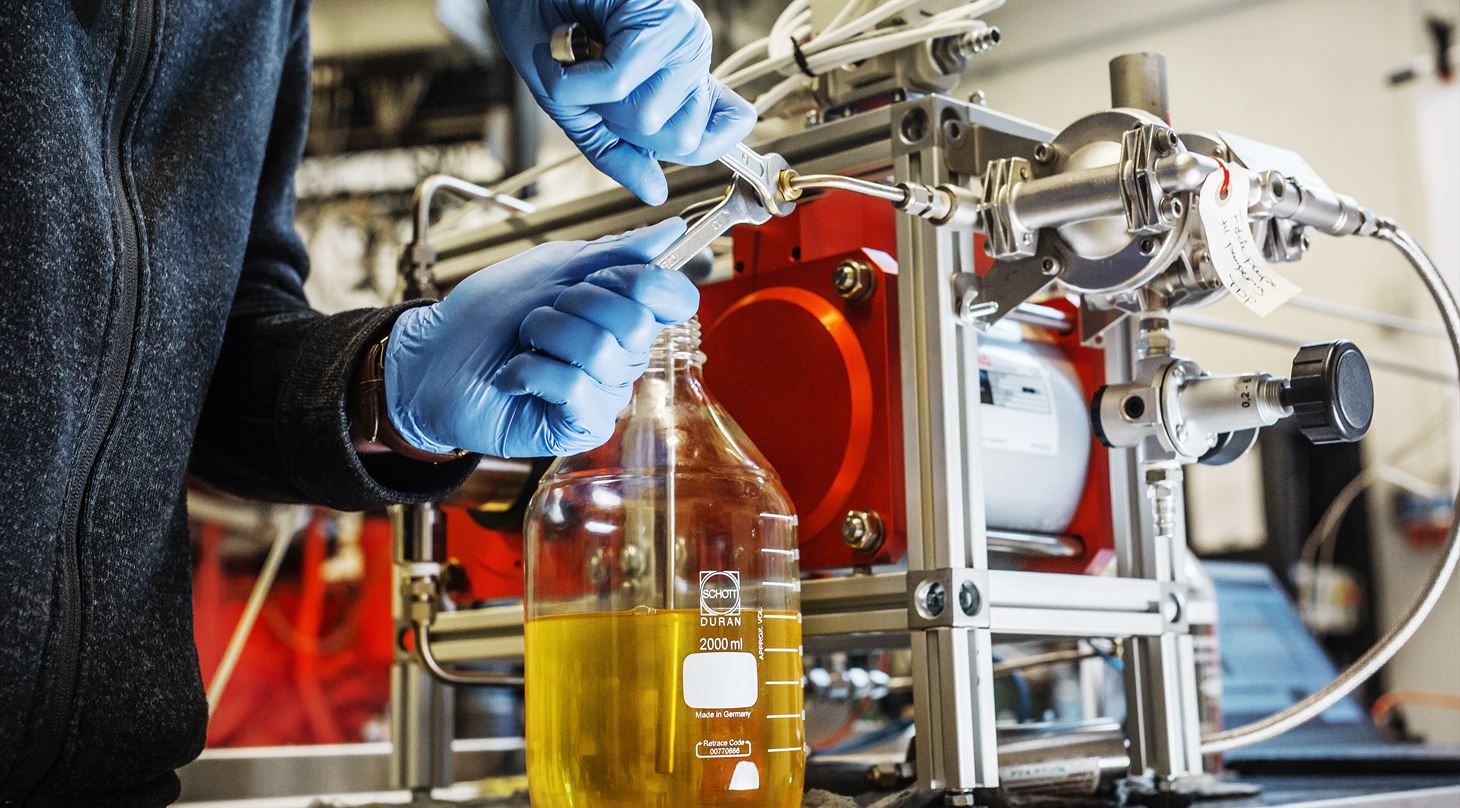
AFLOAT - Ammonia Fuelled Combustion for Marine Applications
Select Page
Shipping accounts for over 2% of global CO₂ emissions, and the sector faces stringent climate requirements both nationally and internationally. AFLOAT aims to tackle this challenge by breaking down the technological barriers associated with one of the new fuels with the greatest potential for CO₂ reduction in shipping – ammonia. Although burning ammonia itself does not emit CO₂, it is difficult to ignite and burns poorly compared to traditional fuels.
The AFLOAT project seeks to solve this by adding hydrogen to the ammonia, which significantly improves its combustion properties. However, hydrogen is difficult and risky to store in large quantities on board. With cracker technology, we can therefore convert part of the ammonia into hydrogen directly on the ship, optimising the combustion – and the goal is to entirely eliminate the need for diesel, enabling ammonia to become a safe, efficient, and CO₂-free fuel for the ships of the future.
Project Objectives
The goal of AFLOAT is to make ammonia a usable, safe, and CO₂-free marine fuel by developing and demonstrating key technologies and integrating them into maritime energy systems. AFLOAT is developing a complete technological solution – from tank to exhaust – that can ultimately be integrated on board ships.
AFLOAT is focused on the following central areas:
- Combustion of ammonia with hydrogen
- Cracker technology – hydrogen produced on board
- Development and integration of new components – heat exchanger, engine, and burner for boiler
- System integration and overall optimisation
Why Ammonia?
Ammonia is CO₂-neutral if produced with green electricity and can be stored, transported, and handled on a large scale. With AFLOAT’s solutions, ammonia could become the key to electrifying and decarbonising even long-distance shipping.
Who is Behind the Project?
We have brought together some of Denmark's strongest players in energy and green technology to develop, test, and demonstrate solutions that can bring ammonia to the global shipping fleet:
Danish Technological Institute (project management, catalyst integration, engine testing, and communication)
Alfa Laval Technologies (cracker reactor, upscaling)
Alfa Laval Aalborg (boilers, industrial design)
DTU – Technical University of Denmark (fundamental research, model development, and catalyst development)
The project is funded by Innovation Fund Denmark.
Follow Our Journey
On this site, you can continuously read more about AFLOAT’s technologies, news, case studies, test results, and partnership activities.
Project start: July 2023.
Expected completion: July 2026.